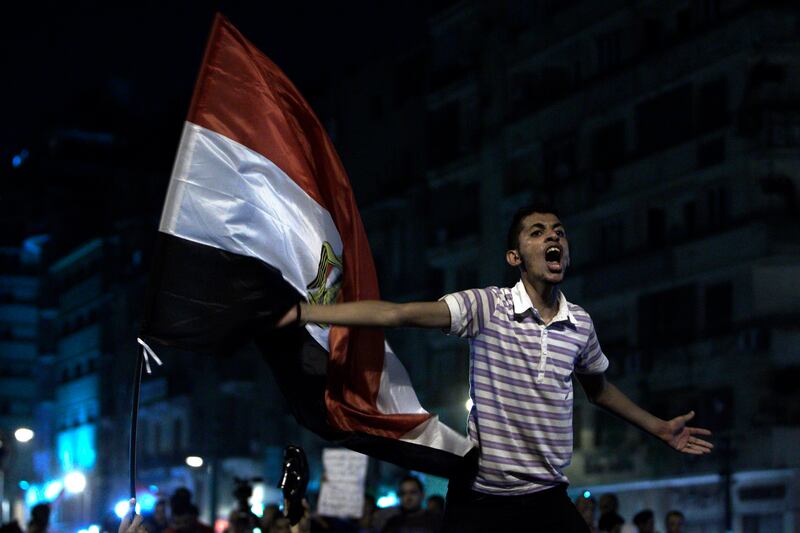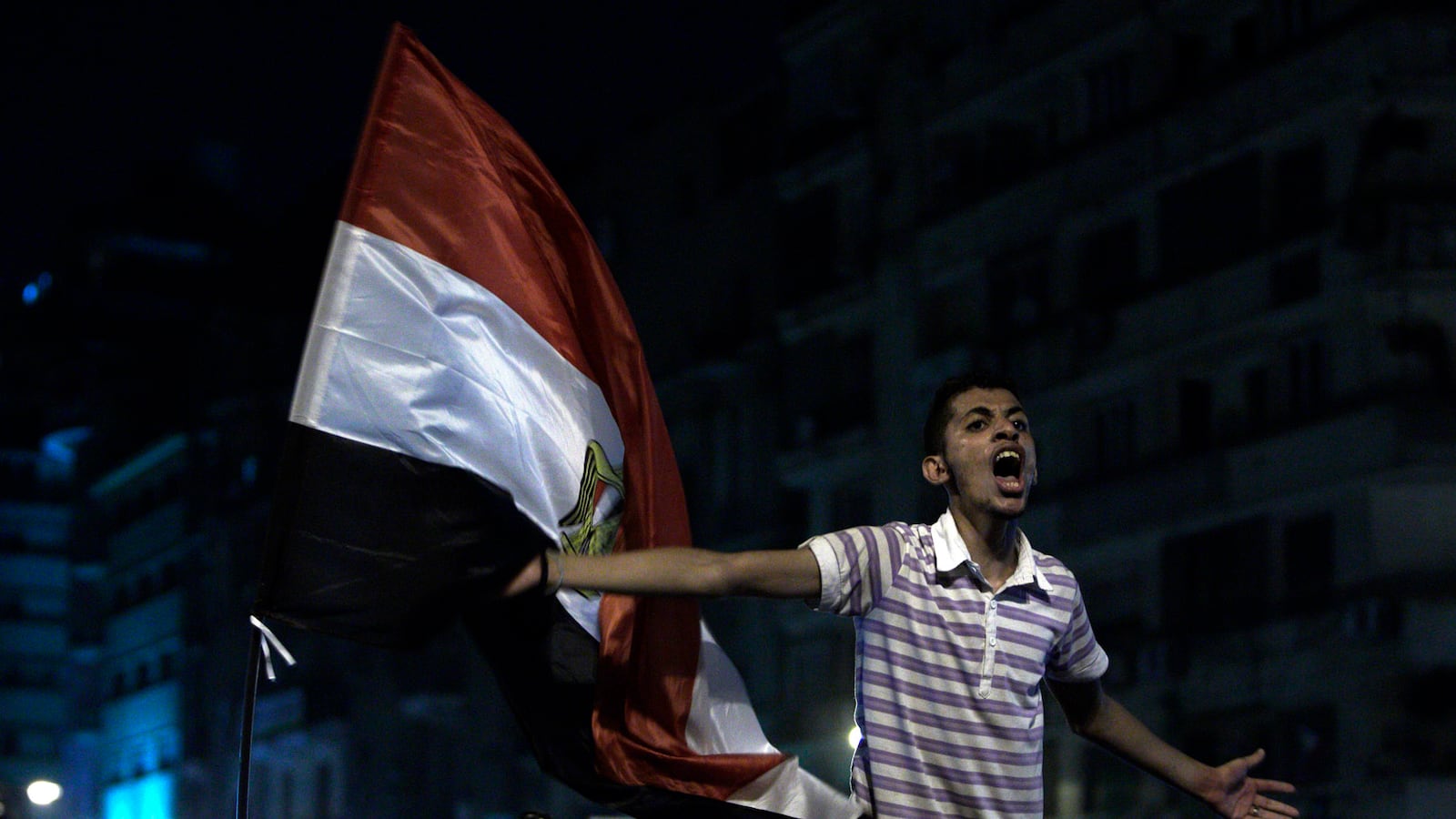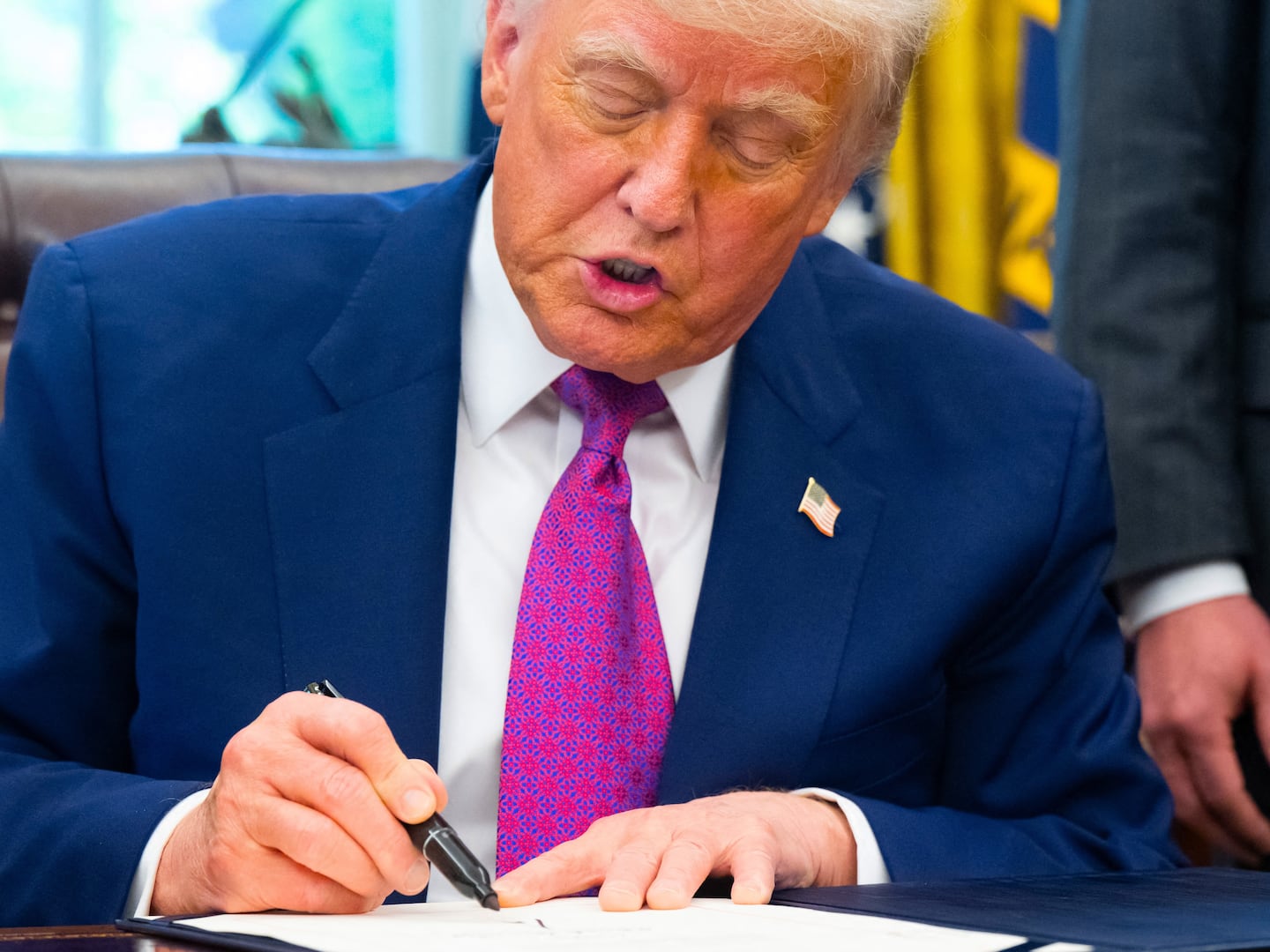With just 36 hours to go until Egypt’s historic presidential election, the country has no Parliament and no new constitution. In a stunning 11th-hour decision, the country’s High Constitutional Court dissolved the Islamist-dominated Parliament, declaring that elections were unconstitutional, essentially leaving the new president at the mercy of the military. In the 17 months since Egyptians joined forces to topple President Hosni Mubarak, the country has evolved from one of collective euphoria to one limp with apprehension, this latest development sending the country into a tailspin.

Egyptians will head to the polls June 16—many with heavy hearts—as they cast a final vote for a president, with the hope of dislodging themselves from more than a half century of status quo. But Tahrir Square still swells with protesters every few days—the upcoming vote creating a dilemma for many, pitting two of the least likely candidates against each other: one, an old guard from the defunct regime, the other, an Islamist heavyweight. With no legislative body to ensure checks and balances, the new president may have to take on the powerful military establishment on his own.
The military, de facto ruler of the country since Mubarak’s resignation, has suffered a severe decline in public opinion following a number of violent clashes with protesters that evoked a bitter outcry. Making matters worse, a government decree passed earlier this week allows military police and intelligence to detain civilians and refer them to military tribunals—a ruling reminiscent of Mubarak-era tactics used to crush dissent. The military may soon surrender the top seat, but recent developments signal that it will continue to play an active role in governance, regardless of who wins.
All the while, the economy is in shambles, and citizens who were already struggling to make ends meet before the revolution are now barely getting by, fueled only by hope that change for the better is on the brink.
Facing off this weekend: Ahmed Shafiq, 70, a former Air Force commander and the last prime minister appointed by Mubarak, and Mohammed Morsi, 60, a U.S.-educated engineer and chairman of the Muslim Brotherhood’s political wing, the Freedom and Justice Party. For weeks, the two have appeared in campaign ads and traveled across Egypt, meeting citizens and addressing their concerns, with hope of establishing new loyalties amid this turbulent period. Egypt's high court also issued a last-minute ruling allowing Shafiq to continue his bid, despite his links to the previous regime.
Egypt certainly has a knack for drama—the transitional period offering a series of twists and turns that have kept even the most informed observers on their toes. Parliamentary elections late last year ended in a stunning—albeit somewhat unsurprising—victory for the Muslim Brotherhood and ultraconservative Salafi Islamists. On the presidential front, candidates raced ahead in the polls before hitting judicial roadblocks that forced them out. In May, viewers across the region stayed up into the early hours of the morning to watch the first televised debate in Arab history—a grueling four-hour event between the two presumed presidential favorites—secular candidate Amre Moussa and moderate Islamist Abdel Moneim Aboul Fattouh. Neither of them would make it to the runoff.
The deciding factor, says one senior politician, was the game-changing participation of the “deep state,” or stalwarts of the old regime. “It all came down to organization on the ground and the ability to bring out the vote,” said Ashraf Swelam, senior political adviser to Moussa, the former Arab League boss whose bid ended sooner than many expected. “The minute Egypt's deep state became a player, it was impossible to beat.”
Morsi’s Freedom and Justice Party insist that a vote for Shafiq will result in the inevitable return to corruption and tyranny. The Shafiq campaign and other secular and leftist groups accuse the Muslim Brotherhood of election fraud, with claims they coerced voters by offering people staple goods and urging that a vote for Morsi is a vote for God. “This is really ridiculous,” said Amr Darrag, secretary-general of the Freedom and Justice Party in Giza and a member of the newly established committee tasked with rewriting the Constitution. “Our role with poor people has been well established for 80 years and has never been related to elections. Our members try to help people, solve problems, and the Muslim Brotherhood have a lot of credibility with the people because of that.”
“We had many people claiming to be with us—who were not—giving people sugar and rice and telling people that if you vote for Morsi you will go to paradise,” he added. “We caught them and filed charges.”
Earlier this month, tens of thousands returned to Tahrir for a demonstration dubbed “The Revolution’s 19th Day,” following a courtroom drama that ended in the acquittal of Mubarak’s two sons and a number of senior intelligence and security officials for conspiring to kill protesters. The ruling highlighted the growing fear that reforms promised by the transitional government ahead of this week’s elections had not—and will not—manifest themselves. Although Mubarak himself was handed a life sentence, and he is reportedly clinging to life, the suspicion by many is that he is not out of the picture yet.
“The presidential election in Egypt today is motivated by fear, not democracy,” said Said Sadek, a political scientist at the American University in Cairo. “If you are afraid of Islamists you vote for Shafiq; if you hated the last regime you vote for Morsi. The initial premise of this revolution was ‘no theocratic state; no military state.’ Now we are left choosing between those two.”
In fact, the road to revolution in Egypt predates the Arab Spring uprising. In 2005, Mubarak, under pressure at home and abroad to democratize, announced the country’s first ever multiparty election. The elderly leader embarked on a cross-country campaign like never before, hiring PR managers and a campaign team of savvy youth to run the show. Still, he walked away with 88.6 percent of the vote and his primary opponent Ayman Nour was jailed soon after. When the opposition took their vengeance to the streets, crackdowns became increasingly heavy-handed.
Then two years ago, a 28-year old man in Alexandria named Khalid Said was beaten and tortured to death by police. The gruesome images of his disfigured corpse exploded onto the Web like a wildfire and the voice of the opposition, most of them youth, grew enraged. Under the campaign name “We Are All Khalid Said,” they began to organize online, their calls growing bolder and more unified, making mobilization easy for the Jan. 25 protests last year—even amid a virtual blackout when the Mubarak regime blocked mobile and Internet services. “The problem is that after a while most revolutions lose steam and the transition period was mismanaged and it strained everyone,” said Sadek.
Ismail Ahmed, the owner of a grocery and souvenir shop near the Pyramids, believes that despite this political awakening, decades of autocracy have instilled a deep fear of thinking outside the box. “People don’t know any different. They voted for Morsi because they think he represents Allah or they voted for Shafiq because he bears the scent of the mother who abandoned them," he said.
Internationally, there is fear of what an Islamist-run Egypt would look like and how it would impact longtime business and political agreements, including the Camp David Accords with Israel. Darrag, who is also on the foreign-relations committee of the Freedom and Justice Party, says Camp David will be honored if Israel upholds its side of the bargain. “This includes issues like Palestinian right of return, ending all settlements in the West Bank, ending the siege on Gaza,” he said. While Morsi has made provocative comments about Israel, once calling it a “vampire” state, has said that the treaty will remain untouched.
Concerns are also high that women and Coptic Christians—the largest Christian population in the Middle East—would face increased oppression. As it stands, Christians and women are underrepresented in both Parliament and the constitutional drafting committee. “This problem dates back to the old regime and I think there is potential for improvement if the society genuinely opens,” said Emad Gad, a Christian politician with the secular Social Democratic Party who was part of the dissolved Parliament. “Of course, with regard to the Islamists, there is a concern: only 2 percent of their representatives in Parliament are women, and of course none are Christian, and they hold the majority.”
Although a carnival-like atmosphere remains in Tahrir, with vendors now dispersed across the square selling Egyptian revolutionary souvenirs, uncertainty for what lies ahead is taking its toll. Analysts believe that election predictions are highly complicated by massive swing-vote potential and a planned boycott by many secular groups. While the sense is that Shafiq will win the Christian vote, 75 percent of the 300,000 Egyptian expatriate votes have already gone to Morsi.
Most significantly, the citizens in Egypt—the Arab world’s most populous nation—are holding their breath over the stalled economy, with growth forecast to drop to 1.5 percent this year, from 1.8 percent last year, according to the International Monetary Fund. Tourism revenues—Egypt’s cash cow—plummeted 30 percent in the first quarter from the same period last year. Without stimulation, there will be no jobs, no improved education, no institution building—some of the very issues that sparked this revolution in the first place.
“Do you think once the president is elected and the military goes home that workers will be happy with their wages or people will be happy with the quality of healthcare?” said Gasser Abdel-Razek, associate director of the Egyptian Initiative for Personal Rights. “We have turned a page and there is no turning back. With both options, it’s going to be bloody.”






